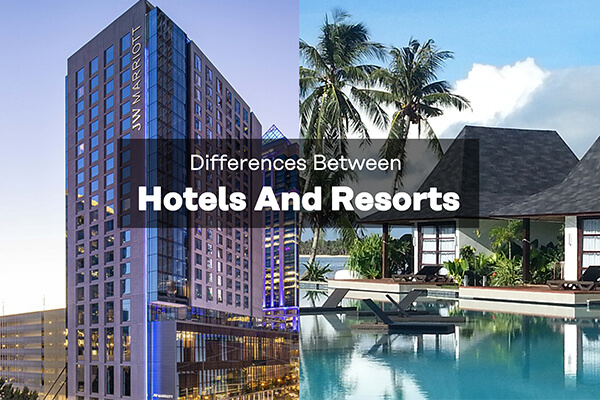Choosing between a hotel and a resort majorly depends on the reason for traveling. Hotels cater to travelers who need a place to spend the night at a certain destination while resorts tend to be a destination in themselves. Hotels focus on a traveler in general while resorts appeal to vacationers. The difference between hotels and resorts boils down to what each has to offer. These two differ in;
1. Entertainment
Sometimes hotels will provide guests with live entertainment in certain areas on the premise. Others may also direct guests on where to go to find even more exciting things to do in the direct surroundings.
Resorts always have live music plays weekly while some even host festivals and large-scale events centered around music and food. They also offer talent shows, live musical concerts, themed events, and cocktail parties.
2. Dining and restaurant
Hotels are often situated with a nearby or internal restaurant(s). In high-end hotels, there may be a separate bar and restaurant while in some a bar and lounge will sometimes be part of this restaurant. The food served has all of the casual comfortable staples.
A resort will have multiple restaurants serving up a variety of experiences and flavors. They have a wide variety of restaurants and (swim-up) bars on the property to cater to a variety of cuisines during their guests’ stay. This works in the favor of those who prefer not to go hunting off property for the things they want during their vacation. Resorts offer an upscale atmosphere and a casual bite.
3. Activities
Activities of hotels can be limited to visiting the gym, as most guests spend their time outside the premise. However, the most popular properties are located near airports, main streets, and other highly populated areas, and therefore, its not hard to find things to do nearby. Hotels are often located near major transportation corridors like main streets, freeways, or airports. As a result, hotel lobbies usually display brochures for nearby and local activities, shopping centers, theme parks, museums, and other tourist attractions.
Resorts, on the other hand, offer a wide variety of additional sports and leisure activities within walking distance of your room. They are often near shores, forests, mountains, etc. Many resorts use this key fact to offer equipment rentals for outdoor activities e.g. paddleboards, boats, jet skis, and kayaks for rent. Additionally, resorts have fitness centers, hot tubs, and luxurious pools that are often larger with high-end equipment than most hotels.
4. Spa services
Hotels will sometimes have a spa with limited services like pedicures, massages, and manicures. Some hotels allow a local massage therapist to give free 25-minute massages in the lobby if they don’t have a spa.
Resorts offer a full range of spa and salon services including skin treatments, Swedish massages, hair color, lash extensions, etc. They may also sometimes build entire vacation packages on retreats around spa services.
5. Location
Hotels tend to be located in urban areas encouraging tourists and visitors to check out the sound and sights of the clustered city-scape.
Resorts tend to be positioned in rural areas encouraging tourists and visitors to check out the beach, forest, or mountain environments.
Conclusion
Hotels and resorts are sometimes confused because they both offer dining and lodging options. When choosing between hotels and resorts it’s important to answer the question depending on what you’re traveling for, the sort of experience you’re looking to have, and how long you plan to be there.
Nexqo is a professional hotel key card maker with more than 10 years of experience in the card-making industry. Click here to learn more about our hotel key cards.
Lately, we have developed a new eco-friendly card, BioPaper card. It can perfectly replace plastic cards. Click here to learn more about this material.
You can also click here to learn more eco-friendly cards that you can use for your hotel and resort. If you are not sure, welcome to contact our sales experts any time.
.png)
